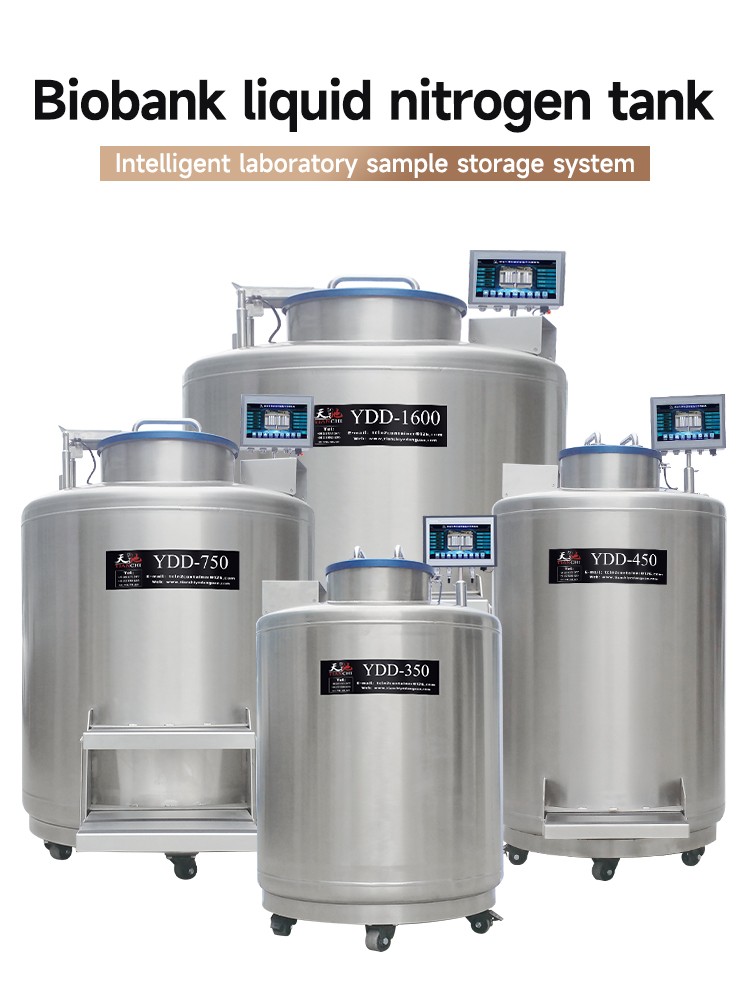In biological sample centers or scientific research institutions, there are a large number of cells, strains, vaccines and other samples that need to be cryopreserved. The scientific research of these samples is of great significance, and their safety cannot be ignored. In addition, there are requirements for batch management and data collection. Vapor phase liquid nitrogen tanks are often chosen over aviation aluminum Dewars.
Vapor-phase liquid nitrogen tank, also known as "stem cell liquid nitrogen tank", is named after it is often used to establish stem cell banks. It is different from ordinary liquid nitrogen containers. It has two storage modes: gas phase and liquid phase. The sample storage method is unconventional and its working principle is break the usual.
Sample storage methods in gas phase liquid nitrogen tanks:
Partition management, gas phase preservation!
The inner tank of the stem cell liquid nitrogen tank is divided into two areas. The upper area is for samples, which is the storage area for stem cells, embryos, bacteria, etc.; the lower area is for liquid nitrogen storage only and does not contain any samples.
The bottom position, which is the liquid nitrogen storage area, is equipped with an evaporator to provide evaporated nitrogen for sample storage to cool down.
The sample is only "close" to the liquid nitrogen, but does not touch it, and the volatilized low-temperature nitrogen is used to store the cells.
Working principle of gas phase liquid nitrogen tank:
The principle is actually very simple, such as the use of liquid nitrogen evaporation cooling mentioned above!
When the nitrogen in the sample storage area is insufficient to support the sample demand, the bottom evaporator starts working to supply liquid nitrogen to the upper part. This has the advantage of avoiding sample cross-contamination.
The reason why I don’t mention its other storage mode - liquid phase is because the liquid nitrogen reserve in the container is large, much higher than that of conventional liquid nitrogen containers, and the evaporation loss of stainless steel is higher than that of aluminum alloy. When storing in liquid phase, replenish the liquid. Frequent and troublesome, difficult to use, only gas phase storage is recommended.
In addition, the gas-phase liquid nitrogen tank also has high dual-gallery vacuum + high thermal insulation performance, which reduces heat conduction, reduces the evaporation rate of liquid nitrogen, and maintains stable pressure inside the tank. The built-in intelligent control management system is used for real-time detection and abnormal warning of temperature, pressure and liquid level to ensure the stability of the tank and the safety of stem cells.











